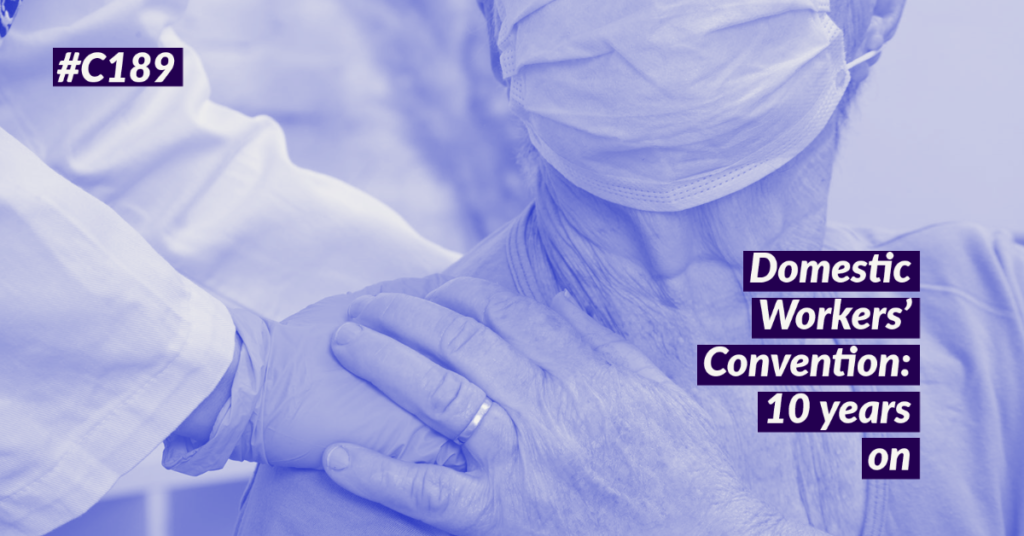On the 10th anniversary of the ILO 189 Convention dealing with Domestic workers rights, a EU-wide alliance of employers, trade unions, European and international institutions and civil society organisations calls for the protection of Europe’s 9.5 million PHS workers.

The ILO C189, which was adopted in June 2011, has only been ratified by 8 Member States yet, namely: Belgium, Finland, Germany, Ireland, Italy, Malta, Portugal and Sweden. Whilst some of the non-signatories have implemented standards exceeding the ones of the Convention, the majority of them does not guarantee rights and freedoms to PHS workers. Actually, they do not benefit from an equal access to the labour market and collective bargaining as other workers.
90% of the approximately 9.5 million domestic workers in the EU-27 are women. Among them, 6.3 million are declared and at least 3.1 million are working undeclared. In Europe, a significant proportion of domestic work is carried out by migrants. In 2013, the ILO estimated that 54.6% of domestic workers in Northern, Southern and Western Europe were migrant workers, a majority of whom are migrant women.
Besides the presentation of the progress realised so far, the two days conference aims at identifying best practices and policies to improves PHS workers living and working conditions. For Nicolas Schmit, European Commissioner for Jobs and Social Rights, “Now is the time to live up to the hopes raised with the adoption of the ILO Domestic Workers Convention ten years ago and move forward with its ratification and implementation. I call on renewed efforts to lift domestic work out of invisibility and unacceptable conditions into recognised, fair and decent work.”.
According to Oliver Roethig, Regional Secretary of UNI Europa: “The EU is usually a leader in workers’ rights. However, when it comes to domestic workers, live-in care workers, and homecare workers, the gaps are evident. Ratifying the Convention will not only make it easier for unions to represent, organise and engage in collective bargaining but also creates the recognition for these mostly migrant women workers.”
In this context Kristjan Bragason, EFFAT General Secretary, claims: “EFFAT’s primary goal is to bring domestic workers into the formal labour market and to ensure that they are covered by all EU labour and social legislation, including occupational health and safety regulations, and that they enjoy equal rights & social protection, also if they provide services in non-standard forms of employment or via platforms, with particular attention paid to (undocumented) migrant domestic workers. More EU Member States should ratify and implement ILO C189, and the setting up of social dialogue structures in the domestic work sector at European level should be supported.”.
In addition to that, the EU-alliance has written to the governments of non-signatories’ Member States to discuss about the better structuration of the setor, according to cultural and economic particularities.
About the ILO C189 alliance:
The ILO C189 Alliance is a group of European stakeholders directly and indirectly involved in the domestic work sector. Partners are convinced that the 10th Anniversary of the ILO C189 marks an important milestone to take stock of the progress made and the remaining issues.
The alliance gathers the following stakeholders: European Commission, EASPD, EFFAT, EFFE, EFSI, UNI Europa, International Domestic Workers Federation (IDWF), Platform for International Cooperation on Undocumented Migrants (PICUM), and the ILO Office for the European Union and the Benelux countries.